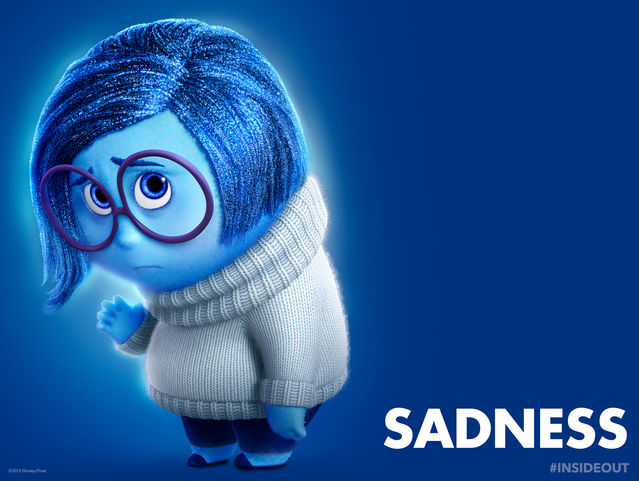Anger
A Noble Sadness: The Benefits of Sorrow
Anger is viral; but sadness may be more connecting
Posted April 28, 2016

“If you aren’t angry, you aren’t paying attention,” goes a slogan from the 60s. By that definition and if social media feeds are any indication, a lot more people are paying attention. But as a psychiatrist interested in our mental and social health, I wonder who’s paying attention to our anger itself. Is our anger bringing us closer together, or polarizing us to divisions beyond repair? What does anger do to the angry, as it solidifies into habit and moral certainty? What does wrath do to its target? I have come to believe that as we shorten our fuses and indeed fuse ourselves to the rapid and viral reactions necessary for social media interactions and online popularity, we become less human, less related, and less loving. We bypass our vulnerability with the seeming strength of rage. We lose touch with the underlying grief of being human. We miss the healing possibilities of a certain, subtle, noble sadness.
Depression is sometimes called ‘anger turned inwards’. I think anger is often sorrow turned outwards. We bury sorrow in a deep and quickly forgotten grave, and turn to power instead. We race from our sorrow, because we feel it is weak. It frightens us. We even get angry at another’s anger, because deep down we are afraid of holding their grief. We are not a society that lauds vulnerability, even though it is the truth of our common humanity. Perhaps our neural wiring itself is biased against sadness. Our fight-or-flight survival circuits react swiftly. No primate outraced a lion by being sad. Fear and anger are our first lines of automatic defense. They each have their place and role. But they come at a cost, and can take us further from the ultimate goals of freedom and peace. If we hold a space for our sadness instead, we might paradoxically find our way to joy.
We are quick to anger online, fiercely defending our identities, beliefs and oddly calcific idea of self. We act like prisoners guarding against any slight, protecting our turf like it’s our only pride and possession – and some inmates are more free than we. In our fury, we forget we are more than our opinions. When we lose our temper, we can also lose a wider experience of self. A major part of what we lose is the experience of connection to others.
Looking beneath our anger, we find a sorrow that comes from our feeling of separation, our sense of being outcaste from another’s concerns. If we explore our sorrow more deeply, we can find both the truth of our connection with all, and the sadness that this connection is so poorly recognized or made palpable in all our myriad interactions. Touching this sadness, we can only be filled with compassion for ourselves and all others suffering from our crisis in connection. The opposite of suffering is belonging; we want to belong. Our only choice is to cultivate belonging, which can only come about through the practice of love. We cannot be truly conscious without holding sadness. Sadness is a route to love, and even altruism. We can drown our sorrows in anger, and even become drunk with rage, but sadness is sobering.
Why not simply be happy? I have nothing against happiness, but it can sometimes translate to blissful, blithe indifference and detachment, perhaps protective of our own well being but not affected enough by the needs of others. Sadness is more open and persuadable, and often more likely to persuade. Sadness allows us to be responsible, to feel responsible. In the face of climate change, racism, sexism, mortality and all the other conditions of our confinement on Earth, perhaps only a deep, collective sadness can ground us, unite us, and help us look for common solutions. Our salvation may indeed lie in sadness.
I don’t think I’ll ever be popular on social media. I am never the angriest person in the room, and am too keenly aware of anger’s long shadow. I’ll find company, though, with those who still have room for grief. I’d rather be related than “right”. I’d rather my outlook be deep with sadness, tender, humble and vast, than towering with rage, inflamed, and incapable of giving rest.
Ravi Chandra, M.D. is a psychiatrist and writer in San Francisco. His book-in-progress, Facebuddha: Transcendence in the Age of Social Networks, explores the psychology of social networks through a Buddhist lens. Sign up for a newsletter at www.RaviChandraMD.com.
(c) 2016, Ravi Chandra, M.D. F.A.P.A.
Occasional Newsletter to find out about my book-in-progress on the psychology of social networks through a Buddhist lens, Facebuddha: Transcendence in the Age of Social Networks: www.RaviChandraMD.com
Private Practice: www.sfpsychiatry.com
Twitter: @going2peace
Facebook: Sangha Francisco-The Pacific Heart
For info on books and books in progress, see here and www.RaviChandraMD.com


